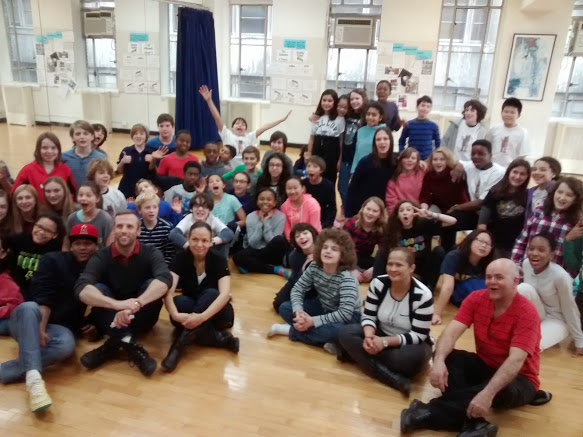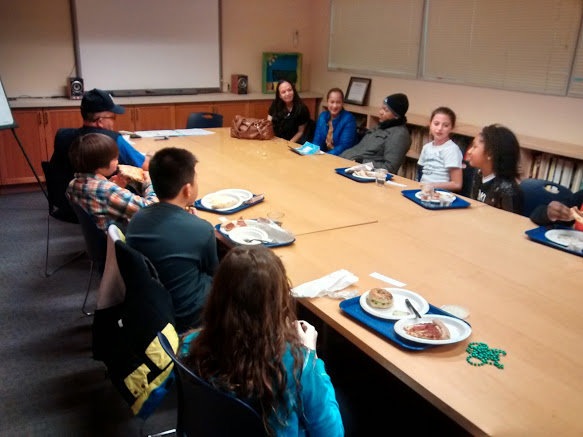6th Grade Service Learning

by Laurice Hwang
This year the middle school focused on stewardship. Stewardship is not just taking care of the environment, but taking care of the people in our community. Service learning in 6th grade incorporated a bit of both: the Billion Oyster Project, which the whole middle school participated in, focused on environmental stewardship. The community-based part of 6th grade service learning focused on literacy.
In sixth grade humanities while studying medieval life, students thought about literacy and the advantages people have when they are to speak, read, and write. However, literacy and power is not just an issue of the past–it is a very real issue in NYC today.
Our sixth grade service learning partnerships focused on English language literacy and ESOL (English for Speakers of Other Languages). In advisory, students discussed what ESOL is, why it is important, and the need for ESOL classes in New York City. In preparation, students read articles (e.g. “New York City Libraries Struggle to Meet Demand for English Language Classes”) and learned more context through presentations like this. We partnered with the ESOL class taught by Jeff Strack that Brooklyn Friends School offers to its staff. The entire 6th grade met with Jeff’s class for a dialogue and question/answer session in both English and Spanish. Afterwards, small groups of 6th graders visited the ESOL class during lunch to practice conversation, play games, and do other activities with the students.
Students reflected on their experience:
Allie R: This year we would spend some Fridays with some of the staff who don’t speak English as much and we helped them practice and learn more English. It was important because we helped them and helped ourselves with some Spanish as well…. I loved it. It was really fun to get to learn about more people in our community, particularly because we don’t talk to those people as much because they don’t speak as much English. It’s a great program and it should definitely keep on going.
Jack C: I enjoyed the experience and the determination of the people there. I was surprised about how much English they knew too!
Danielle F: We talked and played games with staff members that have English as a second language. It is important because some people don’t know or didn’t grow up knowing English and some people living in the U.S. need to learn it to do their jobs correctly. I thought that it was interesting and cool how the staff was working so hard to learn English and supporting each other so well.
Nick M: We talked to the people in the school who first language and we asked and answered questions like favorite sports and foods from their native country.
Max L: At lunch we ate with the people who work in the school who are learning English as their 2nd language. It is important because it is hard to live in New York without knowing English. The people were very nice and pretty good at speaking English. It was fun to play games with them and to talk with them.
Ben C: It was fun meeting them and talking with them to help their English. It surprised me how well they had picked it up compared to my attempts at a second language: French. I learned how based in English life in NYC is. I learned how important English is to NYC and how lost I would feel if I moved to a city that didn’t speak English such as Montreal.
Zach E: We helped people who didn’t know English that well play a learning English game. This is important because it is really hard to live in America without knowing English.
Eloise C: We helped people learn and understand more English if they had it as a second language. It is important so that everyone can be equal and everyone gets the privileges that we do as English as our first language.
Sixth graders were also reading buddies for ESL classes at the Arab American Family Support Center. These classes are part of AAFSC’s Adult Education and Literacy Program, which helps recent immigrants learn English, become active citizens and successfully adapt to life in the U.S. The students felt empowered because they were helping people, but they also learned from their reading buddies:
Nick M: I liked being able to help someone with learning English.
Allie R: I liked being a reading buddy because it was nice to help read them read a story. Also, it was nice to get to know them as well and learn about their backgrounds as a child growing up.
Georgie W: I thought it was amazing helping our community, and learning about where they came from, and how their lifestyle was different from ours. My buddies were from Sudan in Africa and they told me about their school system and how it works.

